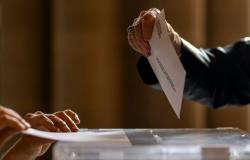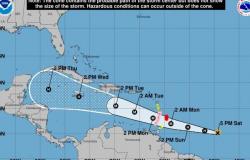The election promises of the far right and far left in France are very varied, but they have one thing in common: they are very, very expensive. It doesn’t matter if it’s about restoring retirement at 60, raising the minimum wage or implementing a general tax break for those under 30. These promised election gifts threaten France’s empty state coffers with billions in additional spending. Where will the money come from? No one has an answer to this question.
For economist Friedrich Heinemann, this reflects a “radicalization of economic policy” by France’s extreme parties. “They are totally unrealistic economic programs. They were written entirely for nirvana, but not for the French economy as it is today,” says the public finance expert at the Leibniz Center for European Economic Research (ZEW) in an interview with DW.
Shattered public finances
The economy of the second largest EU power is already suffering from a mountain of debt, which amounts to around 110 percent of GDP. Last year, the budget deficit was 5.5 percent. According to the criteria of the Maastricht Treaty, a deficit of only 3 percent and a public debt of no more than 60 percent of GDP are allowed.
And the situation could get even worse: according to estimates, the electoral gifts from the French left and right could burden the country’s national budget with an additional expense of up to 20 billion euros per year. According to some experts, it could even be more expensive.
But what will the EU do if a right- or left-wing government in Paris simply takes its chances and cares little about the Maastricht criteria? “There is simply no plan B for this,” admits Lorenzo Codogno, who worked in the Italian finance ministry and is now a macroeconomic adviser to institutional investors in London.
In Italy, the situation of public finances is even worse. The deficit there was 7.4 percent in 2023 and the national debt accounted for about 140 percent of the country’s economic output. But unlike Emmanuel Macron in France, Prime Minister Giorgia Meloni’s government is holding firm in Italy.
“The euro would suffer”
Even after the early elections in France, he does not see “any scenario in which the eurozone collapses,” says Lorenzo Codogno, who also teaches at the London School of Economics (LSE). “But I do see a scenario in which all the European institutions end up in a kind of stagnation in which basically nothing works anymore,” he warns. Then everything would be blocked and there would be no more political initiatives.
“This could be problematic in a situation where there are trade wars between the US and China and a very unstable global geopolitical situation and where two open conflicts are taking place near the EU’s borders,” Codogno told DW. This would also have an impact on the external value of the common European currency and the euro could become a weak currency. “You could say that the euro would be affected, not only the assets but also the currency,” believes the financial expert.
No precautions against populist economic policies
The strict Maastricht criteria were relaxed during the coronavirus crisis and have since become more flexible. The new framework for the economic governance of the eurozone has just come into force on April 30, 2024. While limits on deficit and public debt still apply, the new framework gives national governments more room for maneuver in terms of how and when to get your finances in order.
That may still not be enough, Codogno fears: “France could be the first country to deliberately ignore the new fiscal framework.” The potential for blackmail by highly indebted states is real: in the past, violations of deficit or debt rules by some countries did not have any noticeable consequences from the EU Commission or the European Central Bank (ECB).
“This is precisely the problem that the ECB has increasingly found itself in over the past few years, saying: we are here to help,” Heinemann stresses. In an acute crisis, such as during the pandemic, this has been beneficial in helping countries in distress. “But the ECB should not be the authority that maintains the liquidity of eurozone governments at all costs, even if the problems are caused by irrational economic policies,” the expert stresses. “That would send the wrong signal,” he adds.
Transfers from the north of the EU
On the motives of French voters who vote for a populist party, Heinemann summarizes: “These voters say ‘we understand that the policies we voted for don’t really work. But we can use it to force economic transfers from northern Europe, and that It’s much better than if we experience austerity measures here at home.'”
In that sense, the national debt expert warns that this must be put to an end. “Otherwise we will have a huge problem for the acceptance of the European Union in northern Europe,” says Heinemann.
(ct/er)






